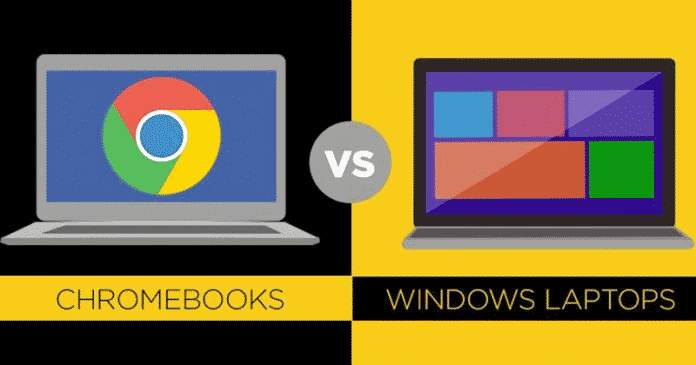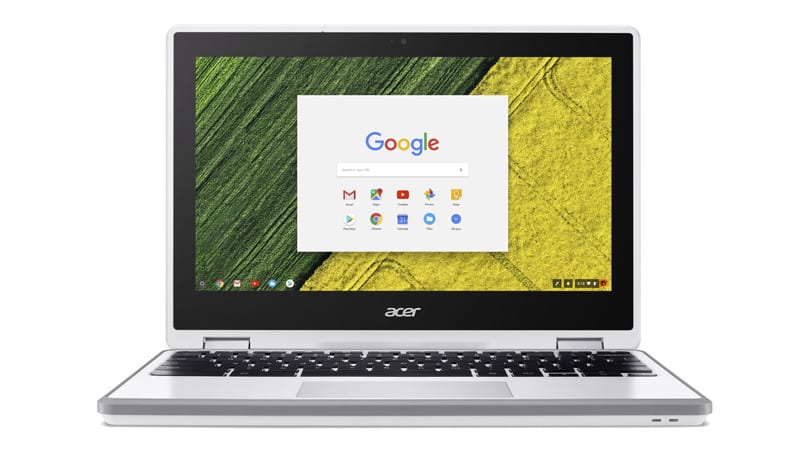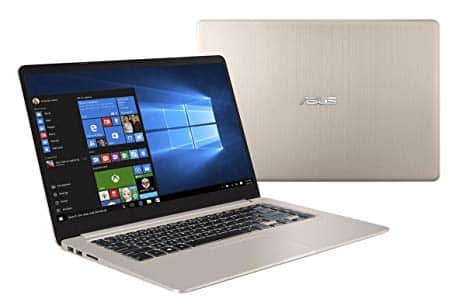Since 2011 the tech giant Google is betting on a new formula of laptops called Chromebook, which offers a lite OS and is much more lite than the Linux operating system, which is basically made for the online use through the advanced capabilities offered by its Chrome web browser.
However, the most interesting thing is that this bet of the tech giant Google has simply surprised the market, as after its launch it is acquired in a very large number in the US educational market, hence, managed to replace the low-cost Wintel laptops, iPad tablets, and Android tablets.
But here we will try to answer in this explanatory article is does the Chromebook have a future? And how it affects the manufacturers with the new Windows-based netbooks? So, now without wasting much time let’s get started and explore the whole article that we have mentioned below.
Advantages of Chromebook
The main advantage is that it is fast, with fair hardware which leads to longer battery life and a moderate cost makes it one of the best option for students. Moreover, security is also an essential feature of Chromebook, since it works in sandbox mode.
Basically, the software runs in a kind of closed box that prevents you from taking control of the machine. Another advantage is that it integrates with the complete Google ecosystem and all the productivity tools we use like Gmail, Google Drive, Google maps, the apps that are distributed through GooglePlay.
Even in the future, it seems to be getting closer, as the arrival of App Runtime for Chrome opens the door to running Android applications, which can make a big difference with any current operating system to put such typical and useful applications on a laptop.
Disadvantages of Chromebook
The main one is that it forces the user to leave the hands of the manufacturer, yes, it means, in this case, the tech giant Google will have the power to decide what user can run on the machine, just like the tech giant Apple does with its iPad.
In hunt of the security and quality of the user experience, the possibilities of use are severely restricted by the tech giant Google, hence, we always have to depend on what the tech giant Google will allow to distribute through GooglePlay.
However, the tech giant Apple knew that how to find the reef in their tablets restricted to their ecosystem, but it is difficult for the tech giant Google to ensure the quality of operation when most applications that are not distributed by Google Play. Moreover, the security of running applications within a browser is essentially less than running a native app in a desktop.
Another drawback is the inconvenience of printing. In many cases, for example, to be able to use it first we must have to install firmware in the printer, then we have to register it in a personal inventory of the tech giant Google.
Finally, the war that has been launched against everything that smells to the tech giant Microsoft represents a big advantage for the use of Chromebooks in companies as it is difficult to integrate with Active Directory systems.
Advantages of Netbook
We have talked a lot about netbooks on several occasions and even in this article, we will again talk about netbooks, its origins, and its possible future. But basically, netbook means it is all about laptops between 11 and 15 inches, with an Intel Atom microprocessor.
As its main advantage is that they have a full Windows OS that is capable of running any application that works in more powerful devices. In addition to being able to use printer, mouse, keyboard or USB DVD drive no matter how old it is, or to connect to the active directory of the company and access via VPN while we are fully integrated with the security and control of the servers, etc.
Moreover, they are low weight devices with a battery life exceeding 6 hours that simply allow anyone to take it everywhere, and another one of the great advantages of the netbook is the native Office integration. Although the office suite is reaching all the platforms in the form of native applications.
However, the great asset of Wintel netbooks is its openness to all platforms. These do not force you to use the Microsoft ecosystem with Office, OneDrive, etc. As you can use tools such as those proposed by the tech giant Google, Apple, or others for any activity that you want to perform online and offline.
Disadvantages of Netbooks
Its biggest weakness is just the combination with a hardware content. As the great opening of modes and uses that the Operating System allows requires the user to have knowledge about what can or should not be installed, configured or used in the device.
When the most basic versions of netbooks have significant limitations in storage capacity, RAM or computing power, which will increase the problems of slowness and simply overload the system that may lead to malfunction. The current security problems that a user can have with their laptop, will continue to exist if the notebook is installed a lot of toolbars and the Recycle bin is filled.
The biggest problem that netbooks in general and the tech giant Microsoft, in particular, will face is the possible frustration of users’ expectations. As it happened with the first netbooks in the first decade of the 21st century, when buyers expect the same capabilities in low-cost hardware.
Something similar to what happened with the first cheap Android tablets, which were innumerable and were still left in a corner. Although it may not seem at first glance, they are not the machines that compete against each other, just, for example, we stated this.
The type of customer that we see adds value to a Chromebook is the user who consumes the services and applications of the Google ecosystem, its main uses are the Google applications and Internet browsing, which has very high security and battery life requirements.
To have the same with less security and less battery then you can simply opt for a netbook with full Windows. So, what do you think about this? Simply share all your views and thoughts in the comment section below. And if you liked this article then do not forget to share this article with your friends and family.
However, the most interesting thing is that this bet of the tech giant Google has simply surprised the market, as after its launch it is acquired in a very large number in the US educational market, hence, managed to replace the low-cost Wintel laptops, iPad tablets, and Android tablets.
But here we will try to answer in this explanatory article is does the Chromebook have a future? And how it affects the manufacturers with the new Windows-based netbooks? So, now without wasting much time let’s get started and explore the whole article that we have mentioned below.
Advantages of Chromebook
The main advantage is that it is fast, with fair hardware which leads to longer battery life and a moderate cost makes it one of the best option for students. Moreover, security is also an essential feature of Chromebook, since it works in sandbox mode.
Basically, the software runs in a kind of closed box that prevents you from taking control of the machine. Another advantage is that it integrates with the complete Google ecosystem and all the productivity tools we use like Gmail, Google Drive, Google maps, the apps that are distributed through GooglePlay.
Even in the future, it seems to be getting closer, as the arrival of App Runtime for Chrome opens the door to running Android applications, which can make a big difference with any current operating system to put such typical and useful applications on a laptop.
Disadvantages of Chromebook
The main one is that it forces the user to leave the hands of the manufacturer, yes, it means, in this case, the tech giant Google will have the power to decide what user can run on the machine, just like the tech giant Apple does with its iPad.
In hunt of the security and quality of the user experience, the possibilities of use are severely restricted by the tech giant Google, hence, we always have to depend on what the tech giant Google will allow to distribute through GooglePlay.
However, the tech giant Apple knew that how to find the reef in their tablets restricted to their ecosystem, but it is difficult for the tech giant Google to ensure the quality of operation when most applications that are not distributed by Google Play. Moreover, the security of running applications within a browser is essentially less than running a native app in a desktop.
Another drawback is the inconvenience of printing. In many cases, for example, to be able to use it first we must have to install firmware in the printer, then we have to register it in a personal inventory of the tech giant Google.
Finally, the war that has been launched against everything that smells to the tech giant Microsoft represents a big advantage for the use of Chromebooks in companies as it is difficult to integrate with Active Directory systems.
Advantages of Netbook
We have talked a lot about netbooks on several occasions and even in this article, we will again talk about netbooks, its origins, and its possible future. But basically, netbook means it is all about laptops between 11 and 15 inches, with an Intel Atom microprocessor.
As its main advantage is that they have a full Windows OS that is capable of running any application that works in more powerful devices. In addition to being able to use printer, mouse, keyboard or USB DVD drive no matter how old it is, or to connect to the active directory of the company and access via VPN while we are fully integrated with the security and control of the servers, etc.
Moreover, they are low weight devices with a battery life exceeding 6 hours that simply allow anyone to take it everywhere, and another one of the great advantages of the netbook is the native Office integration. Although the office suite is reaching all the platforms in the form of native applications.
However, the great asset of Wintel netbooks is its openness to all platforms. These do not force you to use the Microsoft ecosystem with Office, OneDrive, etc. As you can use tools such as those proposed by the tech giant Google, Apple, or others for any activity that you want to perform online and offline.
Disadvantages of Netbooks
Its biggest weakness is just the combination with a hardware content. As the great opening of modes and uses that the Operating System allows requires the user to have knowledge about what can or should not be installed, configured or used in the device.
When the most basic versions of netbooks have significant limitations in storage capacity, RAM or computing power, which will increase the problems of slowness and simply overload the system that may lead to malfunction. The current security problems that a user can have with their laptop, will continue to exist if the notebook is installed a lot of toolbars and the Recycle bin is filled.
The biggest problem that netbooks in general and the tech giant Microsoft, in particular, will face is the possible frustration of users’ expectations. As it happened with the first netbooks in the first decade of the 21st century, when buyers expect the same capabilities in low-cost hardware.
Something similar to what happened with the first cheap Android tablets, which were innumerable and were still left in a corner. Although it may not seem at first glance, they are not the machines that compete against each other, just, for example, we stated this.
The type of customer that we see adds value to a Chromebook is the user who consumes the services and applications of the Google ecosystem, its main uses are the Google applications and Internet browsing, which has very high security and battery life requirements.
To have the same with less security and less battery then you can simply opt for a netbook with full Windows. So, what do you think about this? Simply share all your views and thoughts in the comment section below. And if you liked this article then do not forget to share this article with your friends and family.



